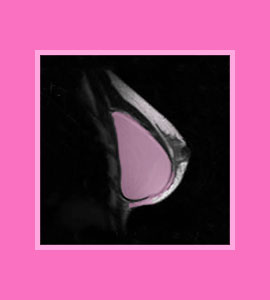
Breast implant mammography is a specialized field requiring extra care and experience on the part of the radiology technician. Mammograms are the standardized test for detecting early forms of breast cancer and should be performed on all women regularly after the age of 40, and on high risk women much earlier in life. Although having breast implants will not prevent you from taking advantage of mammography screening, you should be aware of how the prostheses will affect your testing and what you can do to ensure the most accurate results from your mammograms.
Breast Implant Mammography Testing
A mammogram is a series of radiological views of the breast taken from a variety of angles. These imaging studies will visualize any suspicious lumps or tissue formation inside the breast mound, which may not be palpable during manual self breast examination.
The mammogram involves compressing the breast, in order to get a clear image. This compression might pose a danger of rupturing a breast implant, especially if it is old and stating to deteriorate.
Compression can also cause some older model silicone implants to leak filler material out of a compromised implant shell. Mammograms will reveal silicone which has leaked from the implants and migrated into surrounding tissue.
Breast Implant Mammogram Views
Breast implants can affect the mammogram results in a number of ways. The implant and surrounding scar capsule definitely have a chance of concealing small tumors and other problematic growths. Sometimes the growth actually occurs in the scar capsule itself, making detection even more difficult.
Early detection of cancer, or precancerous conditions, is the main benefit of mammography. Implants can make discovery of the smallest potentially hazardous conditions more difficult than in women without breast prostheses.
Scar tissue might also be imaged as a potential problem and create a false positive result, when in fact, the scar tissue is completely harmless.
Breast Implants and Mammogram Solutions
Undergoing a mammogram from a facility which is experienced in dealing with breast implants will help to make the procedure safer, more comfortable and far more accurate.
A trained technician will use special imaging views and techniques to compensate for the implant-related obstruction of organic tissue. These specialized techniques are called Eklund views, or Eklund displacement views, and help to create more accurate mammogram readings.
Experienced technicians will also know how to take imaging views using less compression and will understand the complexities of mammography on breast implant recipients.
The only problem which can challenge even an experienced mammogram tech is a particularly hard or painful capsular contracture condition. This complication might make getting an accurate reading virtually impossible, due to the inability to compress the breast, excessive hardened scar tissue or simply too much patient discomfort.
Breast Implant Mammography Challenges
Regardless of the effect that your breast implants might have on mammogram results, it is still important to undergo the test as recommended by your doctor.
More women have breast implants now than ever before and most mammography technicians have discovered a variety of methods of providing safe and effective testing, while maximizing patient comfort.
Breast implants are not known to be harmful to your health, but you do not want them to allow a potentially fatal condition to develop unchecked. Mammograms are still the best protection most women have against breast cancer.
For augmented women who have had a bad experience with mammogram screening, there are other options. CT scans and MRI testing do not necessitate breast compression and can be used in women with even severe contracture conditions. Although these tests are longer and more involved, they are extremely useful in providing an early warning against potential problems.
Talk to your doctor for additional advice concerning mammograms and breast prostheses.



